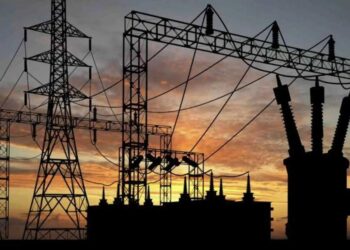Nigerians are not enjoying better electricity supply because Distribution Companies (DISCOs) are rejecting the power supplied to them by the Transmission Company of Nigeria (TCN). This was revealed on the sidelines of the on going Nigerian Gas Association conference in Abuja.
Maikanti Baru, Group Managing Director, NNPC said at the conference that Nigerian National Petroleum Corporation (NNPC) has enough gas volume that can sustain 5,000MW of electricity supply on a daily basis but supply has been constrained by the attitude of the DISCOs who reject power supply from the Transmission Company of Nigeria.
Baru disclosed that gas supply to power plants has grown from 380mmscfd in 2010 to 850mmscfd in 2016 adding that the NNPC can sustain generation of about 5,000MW of thermal energy today.
Stakeholders who spoke on the poor performance of the players in the power sector attributed it to the lack of strong regulatory authority, which is not able to enforce the contractual agreements entered into by stakeholders in the industry.
Joseph Makoju, former Managing Director of defunct NEPA, while admitting that the performance of the power companies has been poor, however stated that there is no going back on the privatization of the power sector.
“Nobody is putting this on the table now. What we are saying is this; even though we are experiencing some disappointment in the power sector, what we should do is to go back to the drawing table. I do not think there is any fear that the power companies should go back to government ownership. At any rate there are still some power plants that are doing well”, said Makoju.
The bottom line is that performance is below expectations and this is a serious concern to everybody. Makoju, however, commended the Transmission Company of Nigeria for making great stride, adding that it has capacity on daily basis to wheel what is being produced but the power is being rejected at the receiving end (DISCOs).
“The fear of those who reject it is that people may not pay for the power. This makes the system frequency high so they are constantly under tension and this has often led to system collapse. If there is low supply, it leads to system collapse and if there is high tension it also would lead to system collapse. The only problem the transmission has now is that it does not get money to maintain its system.”
Austin Avuru, Manaing Director, Seplat Petroleum Development Company, gave reasons why the DISCOs are not able to collect enough revenue from their customers.
“When the privatization was initially carried out, most of the companies were remitting revenue to the tune of about 80 per cent but when some of the DISCOs from certain part of the country began to complain that they cannot remit more than 20 percent of the revenue expected of them, those other ones that were active in payment began to renege and that was the beginning of crisis of short fall in revenue collection”, said Avuru.
The buoyant DISCOs could not see any reason why they were remitting 80 percent while others are remitting 20 percent.
For the sector to realize the kind of revenue that is required of it, there must be a strong regulator that can enforce the sanctity of contracts entered into by the parties in the sector.
“We need strong a regulation; that is how privatized sectors can work. With a strong regulation you cannot do what you like to do but what the contract says”, the Seplat CEO said.
Lamenting on the state of the power sector, Saidu Mohammed, Chief Operating Officer and Group Executive Director, Gas and Power at NNPC, said that neither the government nor NNPC has received any money from the operators of Okpai Power Plant since 2005.
This is the price you have to pay if you engaged in the Joint Venture model that brought to life establishment of Okpai Power Plant.
“NNPC is not being paid for its gas supply and it is also not getting money for power supplied to customers because the power is not being paid for as the companies claim customers do not pay for power supply”, Mohammed said.
He added that NNPC had advised at the beginning of the privatization exercise of the power sector, that before anything is done in the power sector, they should ensure that the distribution subsector of the power sector is made to be efficient first “because we know that is where the problem will come”.
In spite of all the issues associated with non-collection of revenue from customer, Nigerian Gas Company has consistently supplied gas to the power companies but wondered why the privatization exercise is not working













